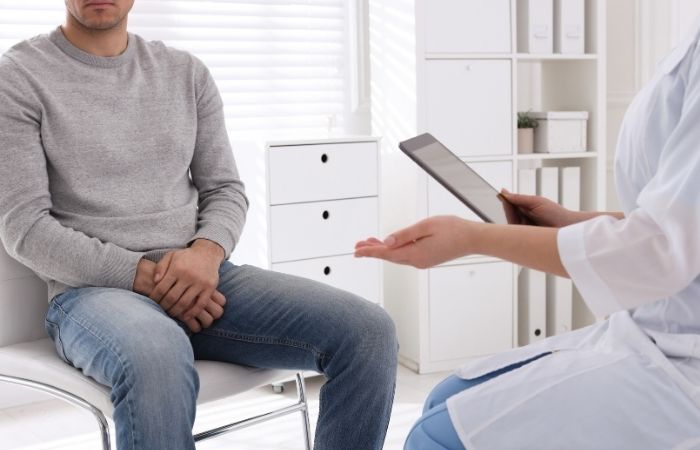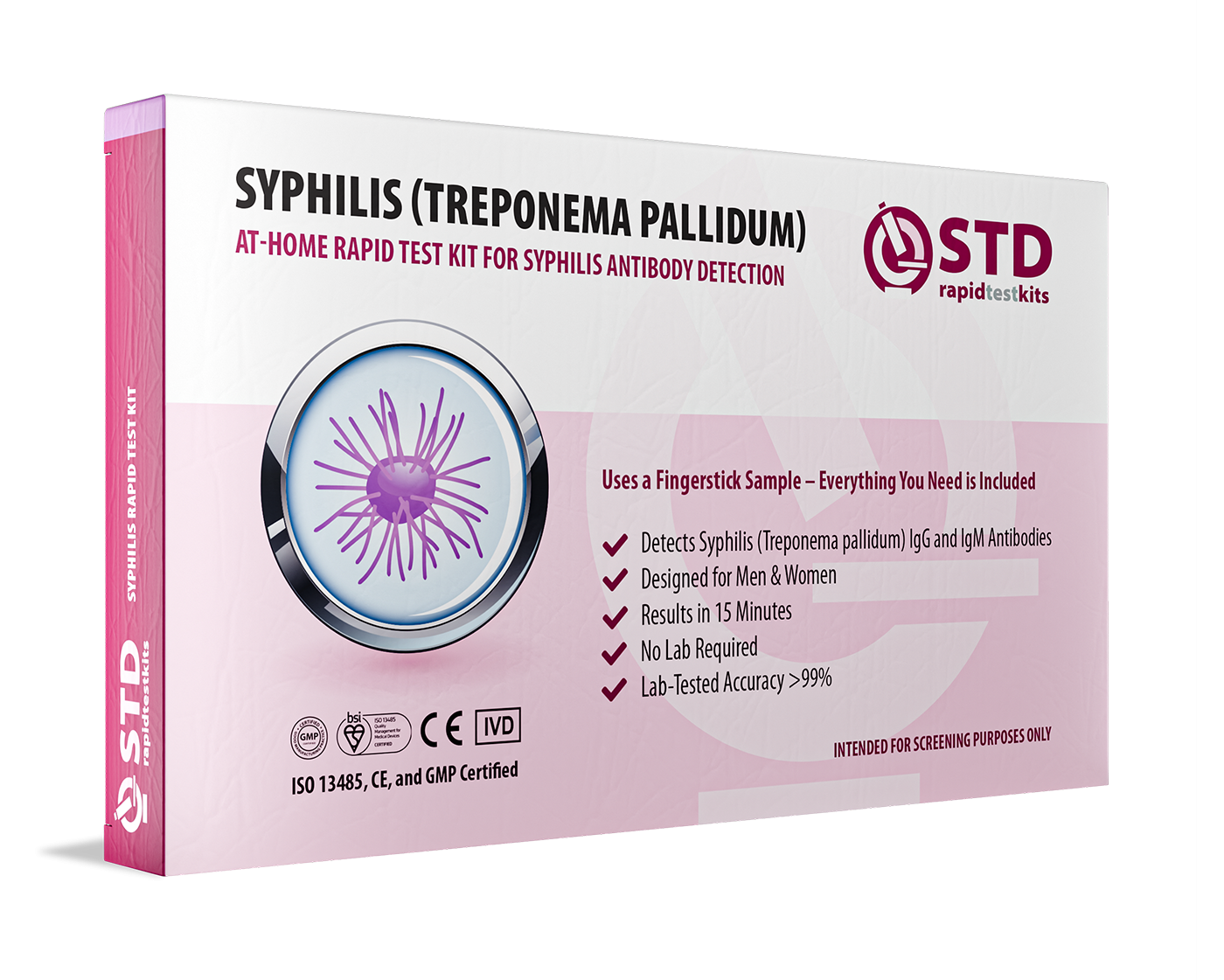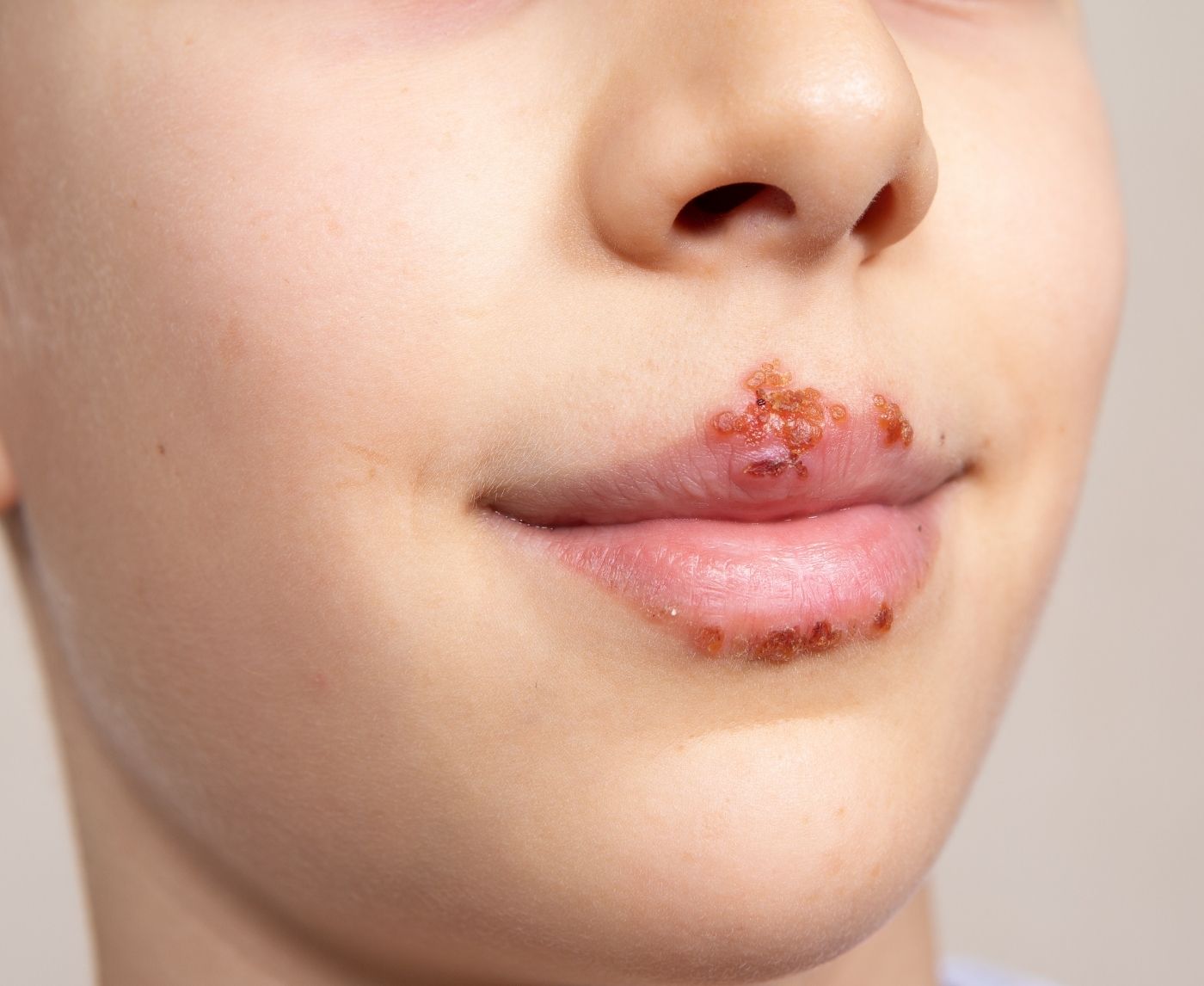Quick Answer: Syphilis is surging in Southern states due to a perfect storm of limited access to testing, stigma around sexual health, rising poverty, and delayed symptoms. Black, queer, and rural communities are being hit hardest.
This Isn’t Just Razor Burn, And Here’s Why That Matters
Most people don’t Google “syphilis symptoms” until it’s already too late. That’s because early syphilis can look like anything, or nothing at all. A painless sore on your genitals, mouth, or anus? It might be the first sign. But that sore heals up quickly, usually within a few weeks, even if the infection is still raging beneath the surface.
People mistake it for a pimple, a scratch, an ingrown hair. Others never notice it at all. After that, the infection enters its second stage. This is when syphilis gets sneaky: a widespread rash (often on your palms or soles), fever, swollen lymph nodes, or fatigue. Still, nothing that screams “STD.” That’s how it spreads, quietly, casually, between hookups, between partners, even between relationships.
One anonymous poster on Reddit wrote, “I had a sore on my lip I thought was from biting it. Turns out it was a chancre. I didn’t know syphilis could look like that.” Another user chimed in, “I was tested for everything after a one-night stand. I was shocked when syphilis came back positive. I thought that was an old-timey disease.”
But the numbers don’t lie: syphilis cases in the U.S. increased by over 80% between 2018 and 2023, and the South is leading the pack. In Mississippi, the syphilis rate has quadrupled. In Louisiana, nearly one in every 1,000 babies is now born with congenital syphilis, passed from mother to child during pregnancy. It’s not just a public health failure. It’s a crisis of silence, stigma, and systemic neglect.
What the Data Shows (And What It Doesn’t Say Out Loud)
Public health officials have been sounding the alarm. But the national conversation still hasn’t caught up to the scale of the problem. According to the National Institutes of Health, syphilis is now increasing faster than any other STD in America, with rural counties showing some of the sharpest spikes. Why? Because testing access in these areas is shrinking, not growing.
Clinics have closed. Medicaid coverage is inconsistent. Many Southern states have refused federal expansion programs that would help low-income residents access regular testing. In places like Alabama or Arkansas, you might have to drive over an hour to find a sexual health clinic, and even then, you risk walking into a building where everyone knows your name. That’s enough to keep someone like Ty from ever getting tested, until it’s already affecting his body.
Then there’s the role of politics. The CDC found that states with the most restrictive sexual education policies, often “abstinence-only”, also show some of the highest STD rates. When people aren’t taught how transmission works, or how to spot a symptom, or how to talk to a provider without shame, they don’t get help. Period.
And for Black, queer, and trans Southerners, that stigma compounds. LGBTQ+ individuals are more likely to face healthcare discrimination, more likely to be uninsured, and more likely to be judged when seeking care. One study in the journal Sexually Transmitted Diseases found that medical mistrust was a top reason for delayed testing among Black MSM (men who have sex with men).
“Every time I walked into a clinic, I felt like I had to explain myself,” said Jordan, a 34-year-old gay man in Georgia. “Like why I needed a syphilis test, or how many partners I had. It felt invasive. So eventually, I just stopped going.”
Silence isn’t neutral. It’s deadly.

People are also reading: How Hepatitis B Vaccination Reduces Transmission Rates
What No One Tells You After the Hookup
It’s easy to say “use protection” and move on. But in the real world, especially in the South, testing and prevention don’t always feel accessible. You might be living in a small town where everyone knows your car. Or maybe you’re still figuring out your sexuality and don’t feel safe disclosing it at a clinic. You might not even have a regular doctor. That’s where the system fails, and where syphilis gets a foothold.
Ava, 22, didn’t find out she had syphilis until she got tested during her first prenatal visit. “I didn’t have any symptoms,” she said. “No pain, no rash, nothing. They told me if they hadn’t caught it, my baby could’ve been born with brain damage or stillborn. That changed everything for me.” She’s one of the lucky ones. Many cases of congenital syphilis go undiagnosed until it’s too late, because most states don’t require third-trimester testing, and many women don’t have regular OB care.
The most insidious part of syphilis? It often feels like nothing. Stage one might pass unnoticed. Stage two might look like the flu. Stage three, the dangerous one, can take years to show up. At that point, syphilis can damage your heart, brain, nerves, and vision. But none of that happens overnight. It happens because someone didn’t get tested. Because they didn’t know. Or because they were too ashamed to ask.
And that shame? It’s by design. We’ve built a culture that moralizes STDs. We joke about them. We use “clean” as code for “uninfected,” forgetting that anyone who’s ever had sex is vulnerable. Even if they used condoms. Even if they only had oral. Even if they were “careful.”
But syphilis doesn’t care about your good intentions. It spreads through skin-to-skin contact, especially during oral or anal sex, even without penetration. You can’t see it. You can’t feel it. You don’t have to finish to transmit it. And it doesn’t care how often you get tested, it only takes one missed test, one skipped sore, one quiet rash.
That’s what makes this a public health issue, not a personal failing. The faster we stop moralizing STDs, the faster we start catching them early, and treating them before they spread.
Check Your STD Status in Minutes
Test at Home with RemediumSyphilis Test Kit

 For Men & Women
For Men & Women Results in Minutes
Results in Minutes No Lab Needed
No Lab Needed Private & Discreet
Private & DiscreetOrder Now $33.99 $49.00
What the Test Could Save You From
There’s no mystery cure. But there is a cure, and that’s the most important thing people forget about syphilis. Unlike some other STDs, syphilis is 100% treatable with antibiotics. Usually just one injection of penicillin if caught early. That’s it. But the trick is catching it before it starts causing real damage, especially if you’re pregnant, immunocompromised, or living in a community where retesting is rare.
And here’s where the system starts to give you back your power. At-home test kits now make it possible to test for syphilis without walking into a clinic. No judgment. No waiting room. No raised eyebrows when you say “I’d like to be tested for everything.” It’s a simple finger prick, mailed in a discreet package, and you get your results in days.
Whether you’re worried about a sore that came and went… or an ex who admitted they tested positive… or you just want peace of mind, testing puts the power in your hands. Literally.
This at-home combo test kit screens for the most common STDs, including syphilis, and is FDA-approved for reliability. If you test positive, treatment is straightforward. And if you don’t? You’ve still taken care of yourself and your partners.
Sex isn’t shameful. Testing shouldn’t be either.
The Geography of Silence: Why the South Is Getting Hit Hardest
You can’t talk about this surge without talking about where it’s happening, and why. The highest syphilis rates in the country are consistently found in Mississippi, Louisiana, Georgia, Alabama, and Texas. These aren’t just numbers on a map. They’re stories of people who never got a reminder text from a clinic, who don’t have health insurance, who live in counties with no OB/GYN for miles.
In one rural Georgia town, a mobile testing unit visits once every two months. That’s it. No local clinic, no hospital with a dedicated sexual health team. If you miss that van? You wait. Or you don’t test. A CDC report from 2023 found that counties with limited healthcare infrastructure saw syphilis rates three to five times higher than the national average. It’s not just about what people do, it’s about what systems don’t provide.
And it’s not a coincidence that many of these areas are also deeply religious, conservative, and slow to adopt comprehensive sex education. When sex is treated as taboo, people don’t ask questions. They internalize fear. They assume that getting tested means you did something wrong. But STDs don’t care how you were raised. They just need one opportunity, and silence gives them plenty.
That silence gets louder if you’re Black. Or queer. Or both. Data from the American Journal of Public Health shows that Black men who have sex with men (MSM) are eight times more likely to contract syphilis than their white counterparts. Not because of behavior, but because of access. Because of partner networks. Because of a long history of systemic racism in healthcare that makes it harder to find care, trust providers, and afford medications.
One 19-year-old college student in Louisiana told his roommate, “I didn’t get tested because I didn’t want to be the ‘gay one with an STD.’ So I waited. And then my ex got sick. And it all unraveled from there.” That’s not a rare story. It’s a map of how stigma moves faster than the disease itself.
If we want to stop syphilis, we have to start telling the truth about who’s most vulnerable, and why they aren’t being protected. That includes fighting for better funding, universal testing in prenatal care, and outreach that doesn’t assume everyone feels safe at a public health office.

People are also reading: How Do At-Home STD Test Kits Detect HIV?
“But I Thought It Was Gone…”: When Syphilis Comes Back
One of the most misunderstood things about syphilis is that it can seem to disappear. That first sore heals. The rash fades. You feel fine. But untreated, the bacteria can hide in your body for years. It enters what’s called the latent stage, where it shows no signs at all, until it doesn't. Years later, you might experience vision problems, nerve damage, or cardiovascular issues. All because it wasn’t caught early.
This is why testing isn’t just for when you’re scared, it’s for maintenance. For wellness. For every six months, if you’re sexually active. For every new partner. For after a breakup, a pregnancy, a one-night stand. For when something felt off but wasn’t quite clear. You don’t need a visible symptom to justify care. You just need the right to know what’s happening in your own body.
When Jordan, who’d once stopped going to clinics out of shame, ordered his first at-home kit, he said it felt “like putting the decision back in my hands.” He tested positive for syphilis, and negative for everything else. He was treated that same week. And now? He tests every four months. “Not because I’m scared. Because I care.”
Imagine if we treated sexual health like dental cleanings or eye exams. Something routine. Something responsible. Something we don’t feel the need to whisper about. That shift alone could change the curve of this epidemic.
FAQs
1. Can you get syphilis even if you used protection?
Yes. Syphilis spreads through skin-to-skin contact, especially during oral or anal sex. Condoms reduce risk but don’t eliminate it completely if a sore is outside the covered area.
2. How does syphilis look at first?
A chancre, which is a sore that doesn't hurt, is usually the first sign. It can show up on the genitals, mouth, or anus, and it usually goes away on its own, so it's easy to miss.
3. Is it possible to completely get rid of syphilis?
Yes, syphilis is one of the few STDs that can be completely cured with antibiotics, usually with just one shot if caught early. But the longer you wait to get it treated, the more likely it is that your body will be hurt for good. Testing early makes a big difference.
4. How soon do syphilis symptoms appear?
Typically, 3 weeks after exposure. But symptoms can vary or be completely invisible. That’s why routine testing matters.
5. What could happen if you don't treat syphilis?
If you don't get treatment for syphilis, it can spread through your body for years without you knowing. Over time, it could cause serious problems like nerve damage, heart problems, vision loss, or problems during pregnancy. What good news? Early treatment stops it dead in its tracks, before any of that happens.
6. Is it possible to test for syphilis at home?
Yes. You can buy FDA-approved syphilis test kits for home use that are private. They usually only need a small amount of blood and can give results in a few days.
7. Who is most likely to get syphilis?
The highest rates are among men who have sex with men, Black and Latinx communities, and people in the Southern U.S., especially in places where healthcare is hard to get.
8. Is it possible for syphilis to come back after treatment?
Treatment gets rid of the current infection, but you can get syphilis again if you come into contact with it again. Testing often is very important, especially with new partners.
9. Can you have syphilis and not know it?
Yes, for sure. A lot of people don't have any obvious symptoms in the beginning. That's why people often call syphilis "the great imitator."
10. How often do I need to get tested for syphilis?
If you have sex, especially with more than one partner or in an area where STIs are common, you should think about getting tested every three to six months. It is also a good idea to get tested while pregnant.
You Deserve Answers, Not Assumptions
Syphilis doesn’t just spread because people are careless. It spreads because people are scared. Scared of judgment. Scared of what the test might say. Scared they’ll be seen as “dirty” or “reckless.” But infection isn’t a character flaw. It’s a health moment. And you deserve care, not shame.
Whether you’ve noticed a sore, felt a strange rash, or just want clarity, getting tested is one of the most powerful choices you can make for yourself and your partners. Syphilis is curable. Silence is not.
Don’t wait and wonder, get the clarity you deserve. This at-home combo test kit checks for the most common STDs discreetly and quickly.
Sources
1. STI Epidemiology and Care in Rural Areas: A Narrative Review
2. CDC County‑Level Syphilis Data Tool
3. Tuskegee Syphilis Study (Historical Context)
4. Barriers to STI Screening and Treatment in the U.S. South: A Public Health Perspective
5. Planned Parenthood: Syphilis Symptoms, Testing, and Treatment Guide










